We’d laugh if it weren’t so distressing. Charging electric cars when out and about is now more expensive than fuelling a petrol equivalent. Or at least, that’s what the RAC reckons.
Most ‘car enthusiasts’ saw this coming. Yet successive governments have shown they know next to nothing about motoring and motorists. Actually, that’s not true – they know how to take our money and laugh all the way to the bank.
It’s not that long ago that Britain’s drivers were being led by Labour’s dangled carrot of lower tax for diesel cars, as they tried to get more of us out of petrol-burning motors and into diesel models, citing lower CO2 emissions.

Nobody listened to those cautioning that the emissions from diesel-burning vehicles were particularly nasty, doing no good at all for those breathing them in.
Around the same time that Tony Blair came to power, Euro NCAP was getting into its stride. Cars needed to be safer, it said. Few would have disagreed at the time. But today? Few would argue they’re dramatically safer – yet the ongoing need for myriad costly active driving aids to score marketing-worthy Euro NCAP test results means affordable cars are as good as a thing of the past.
That’s not the only thing putting the knife into affordable cars, though. Emissions legislation calls for all manner of costly engineering solutions to ensure cars are compliant, further eradicating whatever precious margin was left in a small, inexpensive car.
Then came the switch to electric cars. Get on with it, Johnson’s government told car makers, in November, 2020: you’ve got until 2030 to comply. (Less than two years later, they ended the plug-in grant for new electric cars.)
Trouble is – conveniently ignoring their well-to-wheels emissions for a moment and the sourcing of precious metals for batteries, in the future – electric cars are expensive.
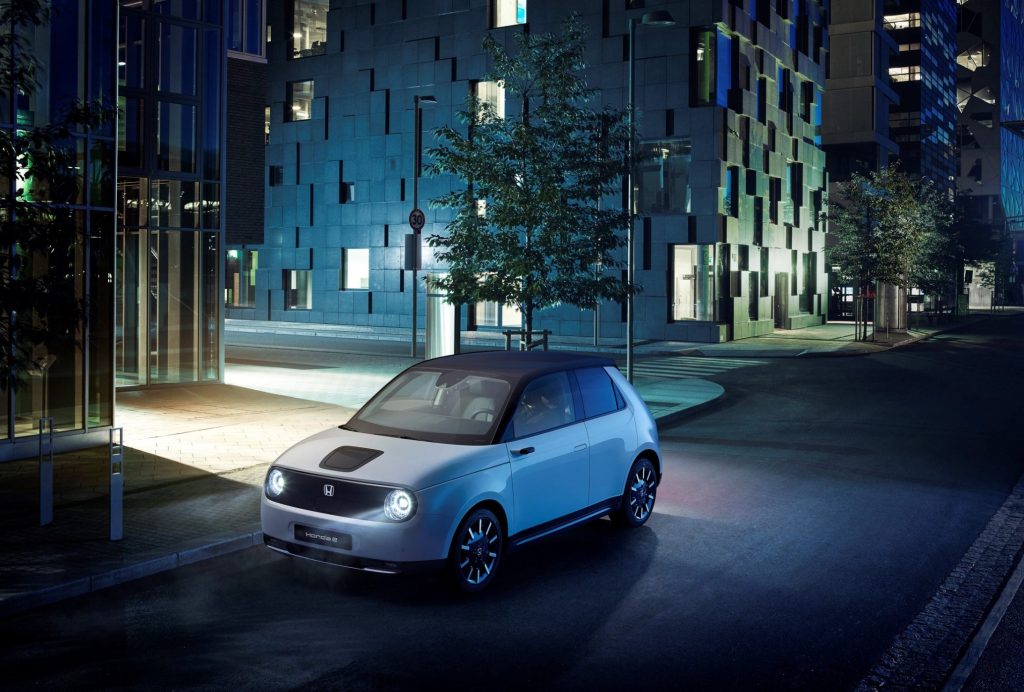
Take one of the smallest, vaguely practical new electric cars you can buy today, the Honda E. It costs £37,000. An electric Vauxhall Corsa is £32,000. But finance, the car companies will retort. But debt, most working families will reply, with more than a hint of exasperation.
We’re also continually reminded that charging at home is affordable. But conveniently, the cost of having an electric car charging point installed – the best part of £1000, before the installation grant – is glossed over. (I speak from bitter experience.)
And now comes today’s RAC report on the cost of using a public rapid charger. For those who have steered clear of the electric car thing, a rapid charger (in this instance, at least) is classed as one capable of delivering more than 100kW of juice, which is what you hope to find when out and about and in need of a quick pitstop to see you on your way again. (These are a crucial part of the emerging infrastructure, which must operate reliably, be priced competitively and not leave you waiting in lengthy queues if electric cars are to be as versatile as the petrol or diesel motors they’re to replace._
Using a rapid charger, the average price paid by Britain’s drivers is said to be 74.79p per kilowatt hour. That is an increase of 47 per cent from the May, 2022 average of 50.97p.
Drivers relying on these chargers pay an average of £38.29 today for an 80 per cent charge, £20.42 more than those charging at home.
It’s equivalent to 20 pence per mile for the cost of electricity, says the RAC. A petrol car that achieves 40 miles to the gallon would cost 17 pence per mile, a diesel doing the same economy 20 pence per mile.
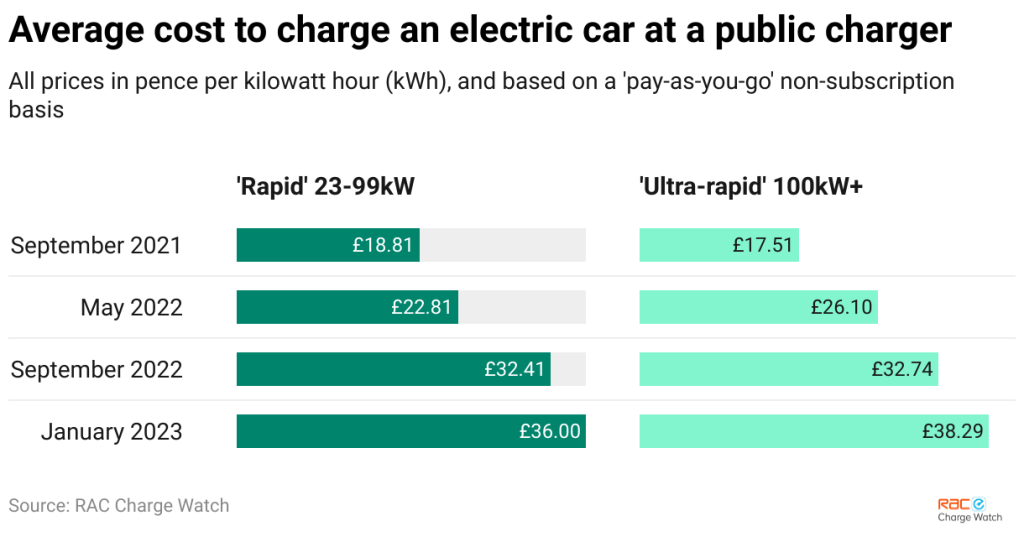
Let that sink it. Electric cars were promised to be cheaper to run, but that hasn’t materialised. And the Energy Savings Trust anticipates high energy prices into 2024. It could be longer, given global events.
The RAC says the government should cut VAT on electricity bought at public charging stations, from 20 per cent to 5 per cent, the same as we pay on our domestic energy rate. It would be a welcome contribution during a cost of living crisis.
Unfortunately, it’s the tip of the iceberg. Maddening queues at public charging points – even when they’re all working – are a thing now, because the uptake of electric cars is outpacing the infrastructure. The government has pledged to install 100 public chargers a month across the UK, yet only 16 were switched on in December, while the weighting towards London and the south is stark if you live elsewhere in the country.
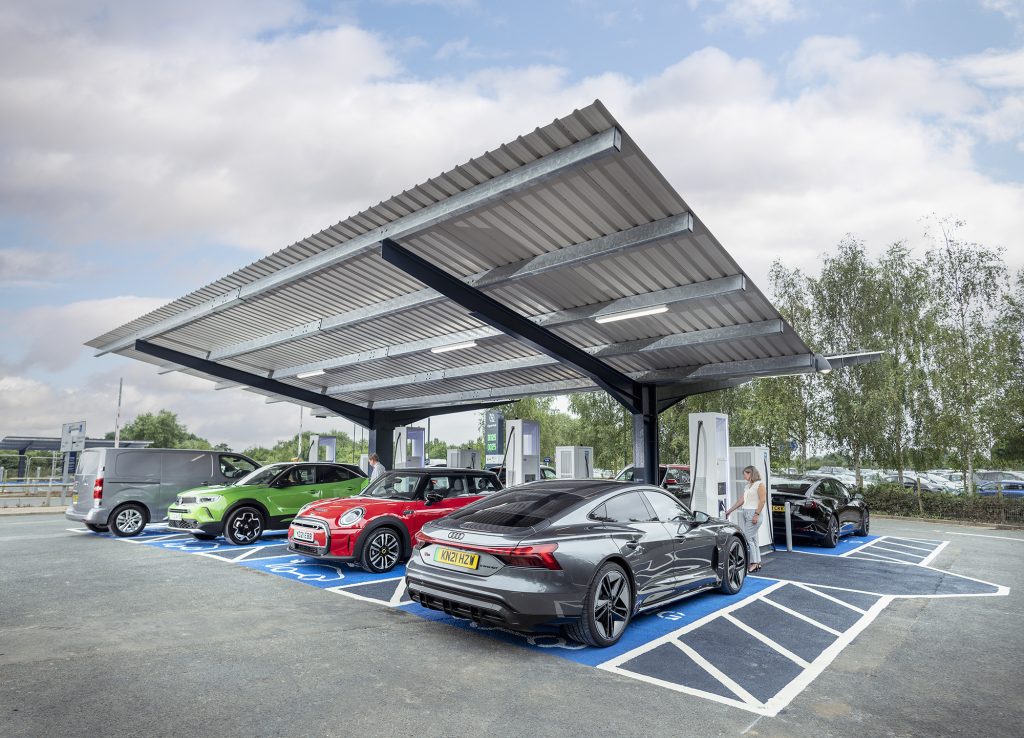
Meanwhile, car makers are changing their business models. They know the days of huge-selling, affordable cars are coming to an end, so by and large their efforts are focussed on shifting (or returning) upmarket, where you make fewer, more expensive cars with healthy margins baked in from the beginning.
A headline from America’s influential political news site, The Hill, says it all: ‘New cars are for richer people: How the auto industry capitalized on pandemic’. The problem for car makers is the same problem facing many other industries: the global supply chain pinch-point for the chips that power everything from our phones to cars, PlayStations to Patriot missiles.
In the US, since the start of the pandemic, new car prices has risen by 20 per cent, outpacing even inflation at 12 per cent. The leaders of GM and Ford, historically builders of cars for the people, say that trend is here to stay: the days of pile ‘em high and sell ‘em cheap are behind us.
So you know what to do. Either put your hand in your pocket, buy an expensive electric car and face the prospect that it could cost more to run than a petrol car, maybe even a frugal diesel too, or join one of the many making do, and making their old car last longer.
Check out the Hagerty Media homepage for daily news, features, interviews and buying guides, or better still, bookmark it.
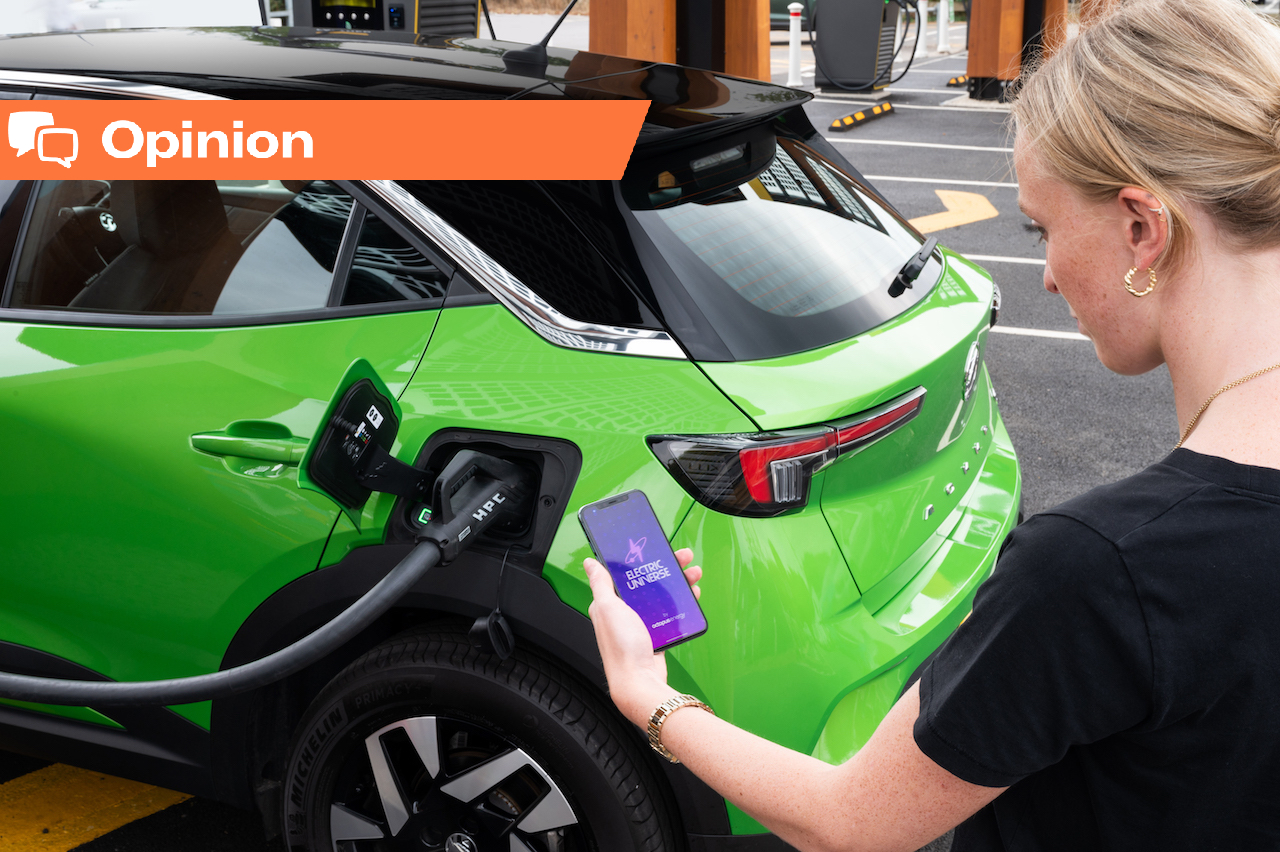
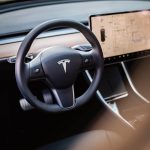
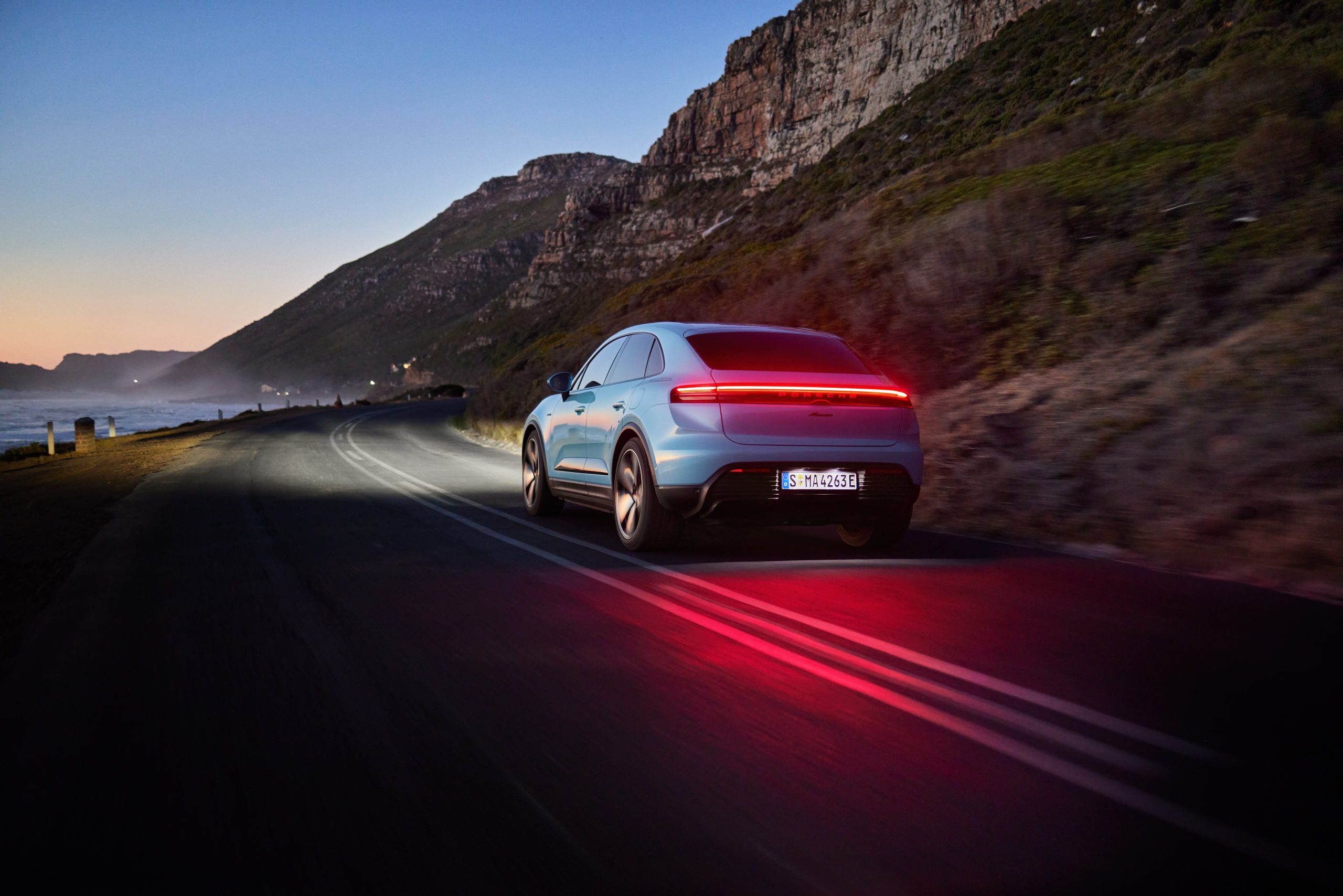
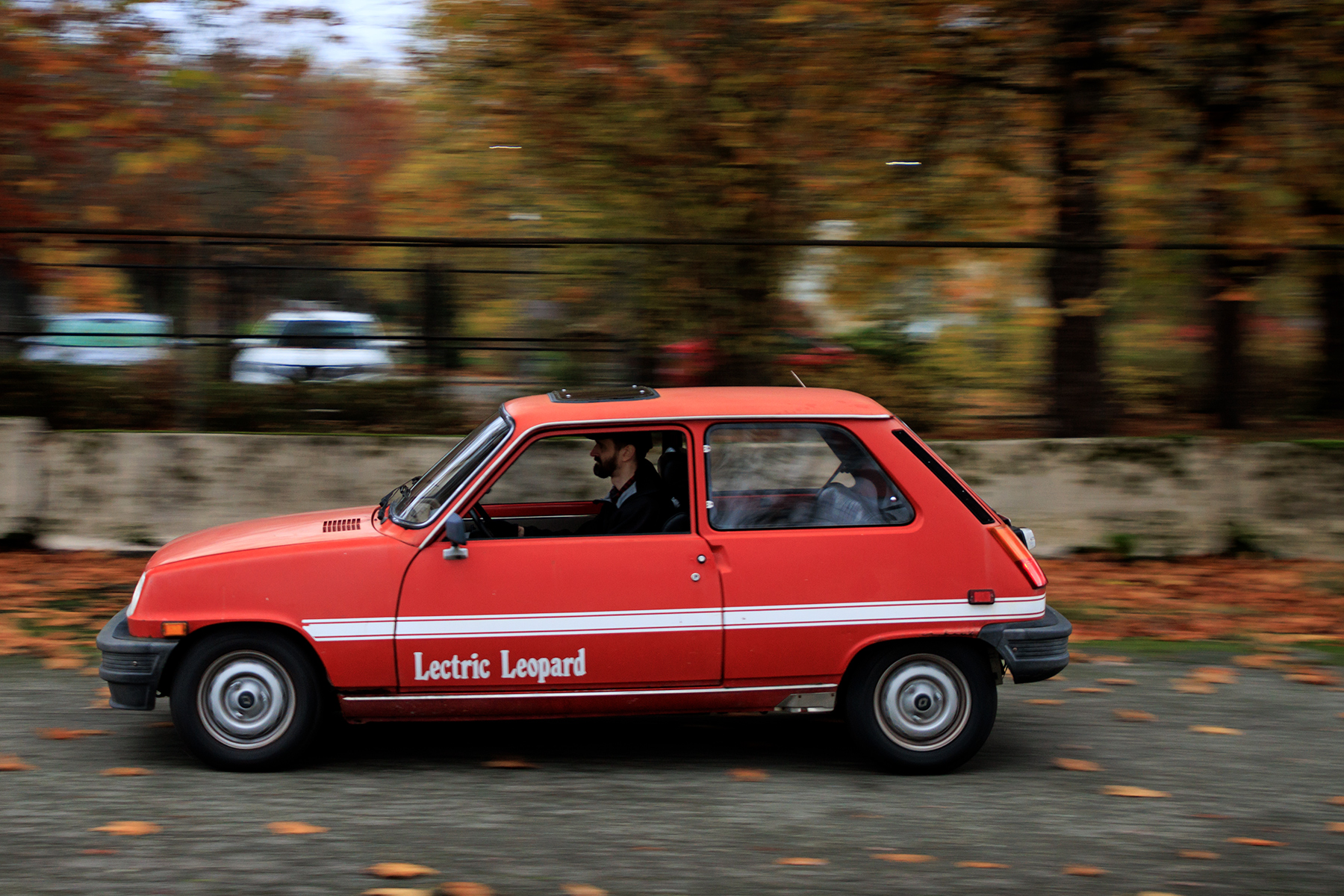
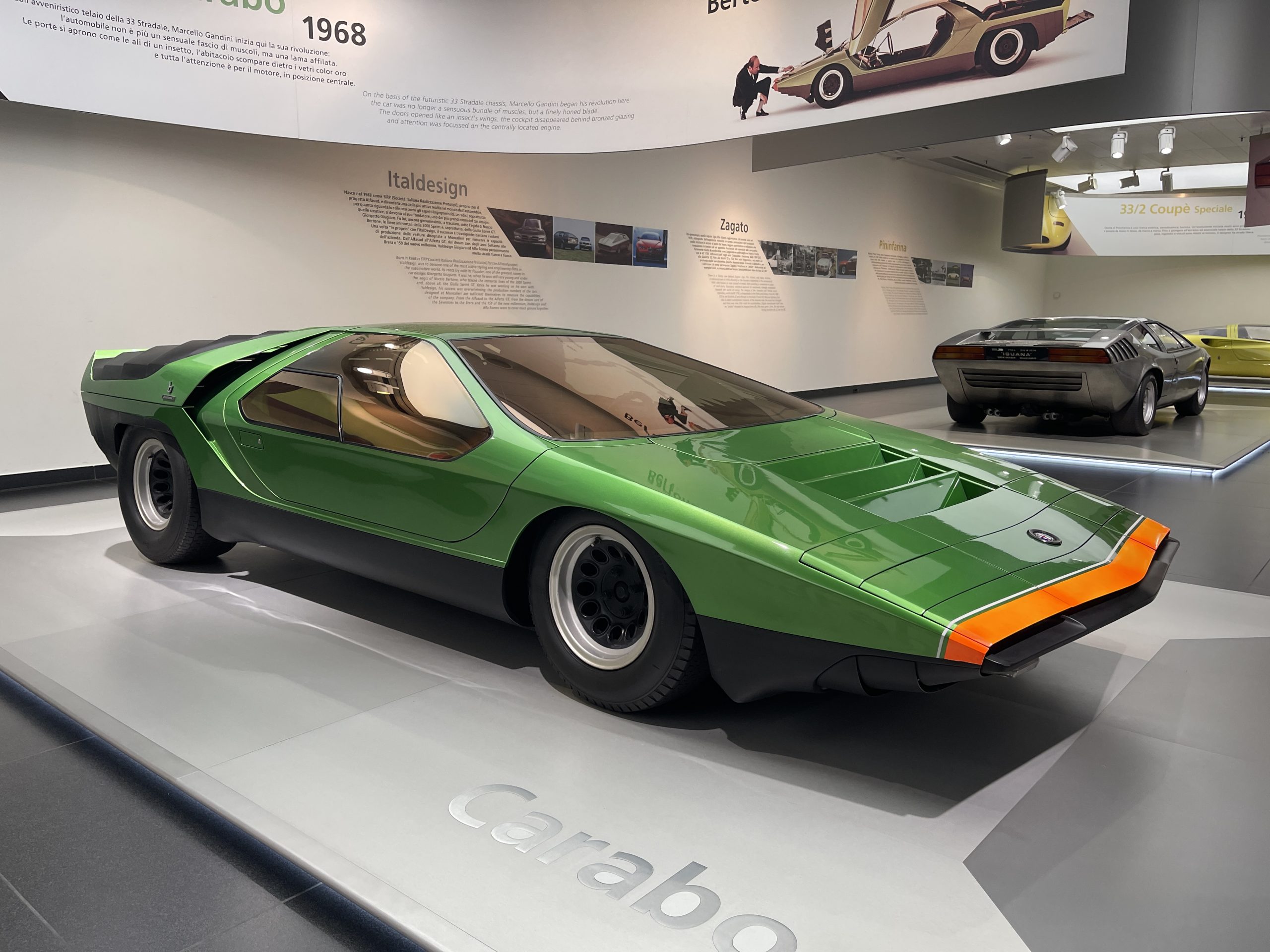
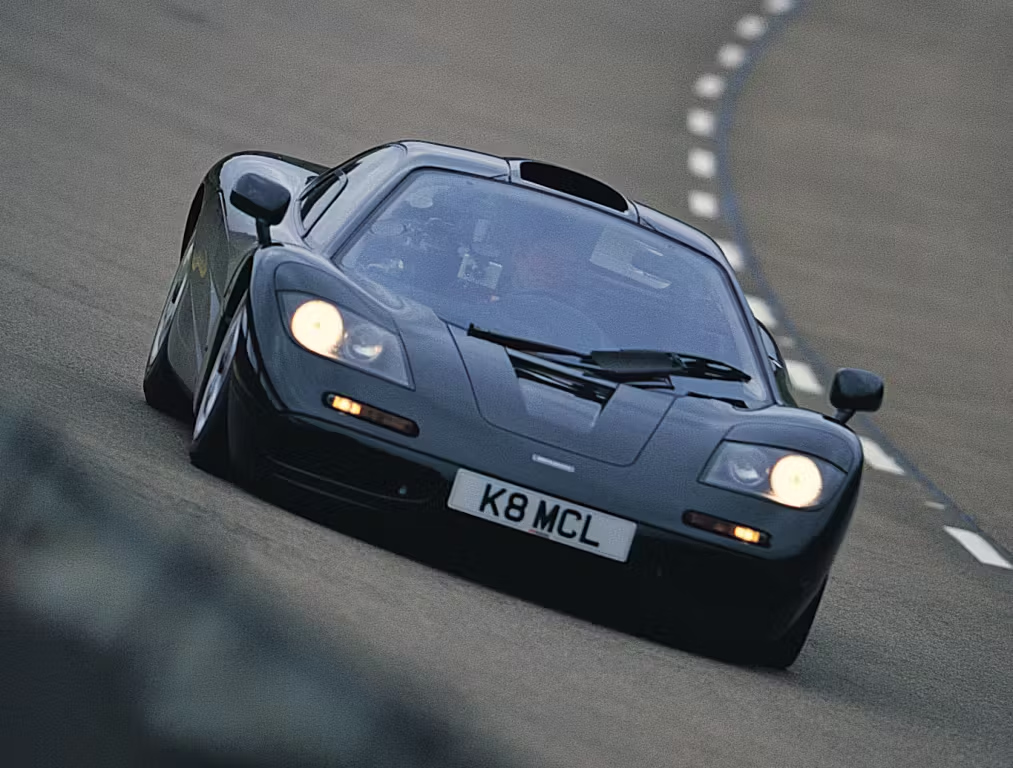


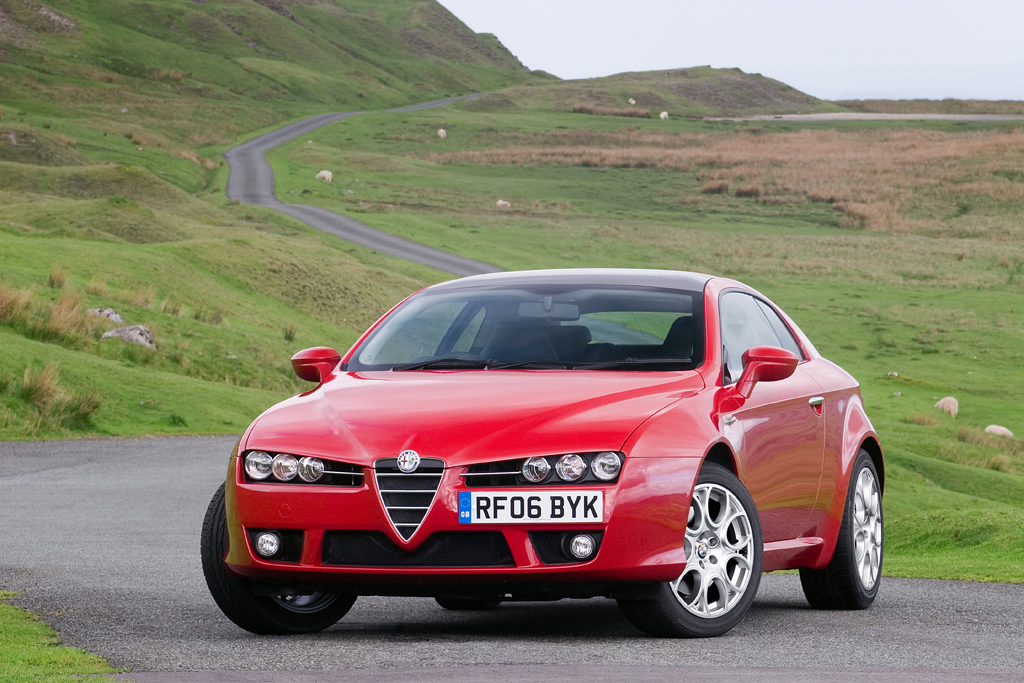

Well as an ex Development Auto Electrician Techician l am waiting for more Hydrogen powered cars. I have had the oppurtunity to drive a Toyota Hydrogen car and was well impressed so make this technology more available or reduce the VAT as your suggest.
11/01 23, No surprises here – anyone considering the historical ‘wise’ choices imposed by governments could foresee these events. Real motive is pricing private car use.
As a driver of an older selection of motors, Silver Shadow, Mini Cooper and a Diesel Mercedes Benz ML, I have for some years also driven a Motability vehicle.
I have for a few years tried to get Motability to understand that unless going Electric becomes “Affordable”, customers will be priced out of the Market.
I never have been convinced nor persuaded by deceitful after deceitful Governments that their ideas of progress make sense.
I even wrote to the then Chancellor of Exchequer Norman Lamont accusing his Government of being no better than Dick Turpin the Highwayman. I used that very analogy in my letter. This I stand by today, Governments simply hold a pair of scissors to our pockets in order to allow money to fall into their hands. Long live Dirty Diesel.
There is an alternative to petrol, H2O split into 2H, 1O. The air of the atmosphere is condensed to water, the water is reservoired and electricity is sent through the water, separating H2O into 2 Hydrogen, one Oxygen- the engine classic engine is exactly same but the emissions are recycled in the atmosphere as H2O, instead of petrol – The Atmospheric Engine (/^v^)/
I’m amazed the RAC keeps putting out this imbalanced comparison, and disappointed that you’ve formed a misleading headline from it. At the very least, compare the “last gasp” rapid chargers to their petrol/diesel equivalent: motorway services. Every EV user I know (including myself) charges their car at home or work for the vast majority of their annual use. This costs me 3.5p/mile. I use rapid chargers on occasion but the RAC comparison assumes you would use them entirely. If your use of an EV would rely on using rapid chargers for all of your energy then, yes, you shouldn’t have an EV.
Also, EV batteries do not contain rare earth metals. If you are referring to lithium, this is abundant around the Earth. The mining industry has been slow to gear up for lithium, with just a handful of mines in the early days, but the big companies are catching up. The forecasted lithium mining volume is still a tiny fraction of the annual copper extraction.
You are right that the public charging infrastructure is a shambles though.
As I understand it, Paul, the average fuel costs do include the filling stations at motorway services.
I would like to know what the government plans to do with all the lithium battery packs when they are no longer able to hold a charge, will they ship them to India and form a giant battery rubbish heap out there?
Quite apart from the cost implications, as i understand things through my experiences as a motor engineer. There are not the resources in the world that would enable a complete change over to the electric vehicles.
The government and the motor manufacturers really ought to be working on other ways, other materials that could a suitable replacement for petrol and diesel. For example but not restricted to Hydrogen. In any case, in my humble opinion we are completely barking up the wrong tree with electric vehicles, and completely barking if we do not wake up before we have invested more money in it. And let us face it, the government are not likely to give any concessions to the taxation of electric cars and costs of charging them. I changed my daily runner 7 months ago and bought a diesel again.
Electric was just another ruse to squeeze money out of us. Instead of demonising those who want to hang onto a car for as long as possible (which is actually the most environmentally-sound thing to do as the car is already made so there isn’t the energy necessary to build a new one) because they can’t afford a new car.
I keep mine because even at 11 years old, it’s barely run in with 56,000 miles on the clock. A bit of care and maintenance and it will run for another 11. But then, MPs are more likely to be ‘lobbied’ by car makers rather than the thousands of garages that look after older cars, which provides necessary employment! Our politicians forget that.
In the 1920s, electric cars outsold petrol. But the range was only about 30-40 miles, apparently, so petrol took over. Even though the LI-ON batteries are different now (and there’s question marks over the ethics of the mining required for their ‘ingredients’) the new batteries in the likes of the first Leaf weren’t much better than the 1920s it seems! What did Einstein say about doing the same thing and expecting a different result?
All true, except that home charging, even with a wallbox, is not the solution. On the basis of the desire for range battery sizes increase and consequently charging times increase. I have driven the Taycan and it is amazing, however, a cautionary tail from a friend – “my next door neighbour bought a Taycan, she drives it one day and charges it for two!. Battery electric with current (no pun intended) technology both for batteries and charging is not a practicable solution
We have the Renault zoe ev .and have to charge on public chargers.we pay anything from 65p to 75p a kw and can take up to ahour and ahalf.with no lighting or cover .we have to sit in the car for the time we are charging.in a cold car as you can’t use the heater.no joke.and you have to download an app for the charger them put money on it before you can use it.we weren’t told this by renault.so we are now going for a petrol car again.not very good for ev’s.
Sooner or later I fear there will be a terrible fire involving electric cars in a confined space such as an underground car park, tunnel, or ferry. They do occasionally catch fire, and are impossible to extinguish. It could also happen after a multiple motorway crash in fog. People will say, as in Grenfell tower, how was this allowed to happen.
I own a EV ,have done for 15 months . Overnight charging at house costs 18 p/Kw. Occasional fast charge at 7kw ,free on most chargers. Solar panels on house provide some free daytime charging ,April to october. never been back for warranty work ,unlike previous petrol/diesel cars. Heats up instantly without it going on fire , never seen one in flames but have seen ten or so icers in flames over 45 years of driving. Sure small lifestyle changes are required with ev use . People are mostly lazy and stick their head in the sand and seem happy to hand cash to oil companies.
Oh and my car was £26500 .
Hi. I’m a retired Ballistic Meteorologist. I’m 88 born in 1934. I have been running motorcycles and cars all my life since the age of 12. Air pollution. Is created by capitalist big business. Sell sell sell is their motto. I have used gas for my cars since 1972. During WW2 we ran transport on coal gas. Gas fuels are 80% lower in carbon. So it’s time it is Law that gas fuels are used. Lpg cars cost 50% less to run. LPG IS ONLY 79p at filling stations.
Come on Public. Wake up. It’s your choice. Due to ignorance of these facts. We the individual are responsible. WE DECIDE. I have used LPG for 50 years. Saving me £25000 for fuel.
WISE UP ITS YOUR CHOICE. YOU ARE THE ONES CAUSING AIR POLLUTION.
Hi ,I would like to go electric but there is no car I can afford to own ,or charge ,were does this government think that the lower paid workers earning under £20000 a year with 2 children can ever afford electric with the cost of living as it is ,my be I should train as a nurse , railway driver etc so I can earn 30-£40000 to enable me to do so ,
Simple mathematics reveals … If a Liquid fuel car takes , say, 5 minutes to fill up and pay …. and an electric car takes say 30 minutes ( if you’re lucky) to fully charge … and a petrol station has 6 pumps … to achieve the same turn-around each Electric station will need 36 charge-up points. Very few fuel stations have the space for 36 charge-up connections with parked vehicles, PLUS those queuing to be Charged-up. Also , very few fuel retailers have the required electrical supply available for 36 vehicles on rapid charge. Doesn’t make either practical or commercial sense.
This articke and some of the comments lightened my day.
I own an EV. I wont be going back to petrol etc. Its a great drive, better than the alternatives. Fuel savings continue to mount up compared to the alternatives. I do charge at home and have a home charger. Currently 10p per kwh overnight rate. That doubled from 5p last year! i.e 1p a mile cost doubled to 2p per mile. I never have to visit petrol station on way to or from work. Charging in summer on the weekend is free since the solar array was fitted. Its a privelidge yes, but, if you have an EV consider investing in solar power at home, payback is faster.
Yes highway fast charging is expensive at the moment. Its all to do with the Russians and the cost of natural gas apparently, and of course the govt wants its cut. Gas is already reducing in price. This high price of energy will end.
My advice, dont listen to the half informed naysayers above. e.g. If you bought a Porche Taycan you can afford a £1000 for a home charger, so dont pay attention to comments like that. It will fully charge while you get your shut eye!
Ignore the misinformation. Petrol is refined uses cobalt (surprise!). Hydrogen fuel cars use rare earth metals in the fuel cell, as do the cat covertors on cars. (Doh!). But who cares right? After all, like Lithium batteries they get recycled, and reused at high efficiency. So no worries India its unlikely we will be sending valuable metals to your landfill sites from any part of our automotive industry.
More advice, dont buy an EV if you dont have home off street charging available. On street charging outside your home is down the road ( so as to speak). Petrol/hybrid is definately the better option at the moment. For the people mis-sold a Renault EV as they have nowhere to charge at home….. dont go to that garage ever again, even for a petrol car!
We also have a petrol car at the house. We like that too!
Electric cars are for the elite and wealthy. In rural areas it is common to have households with several cars as everyone is working in different areas. There is no way they could afford electric cars as most on minimum wages. Their old cars will be used until they fall apart and then they will probably be stuck as zero practical public transport. It was a badly conceive concept by over paid nonentities with no ideal about normal household budgets. Our car is 9 years old and has done less, than 60,000. At our age will have to last until we die as loans are impossible to got.
I do worry a bit about all my 40+ year old motorbikes and the future of petrol.
But not my 1991 Terrano 1 or my 1992 mk3 hilux. (Had them both over 20 years)
Both are old fashioned mechanical accelerator pumps, no electronics, no old ports.
Both run happily on veg oil without modification.
Not seen a future fry up ban yet…..
Car park fires have already happened. I saw a video of one where an EV caught fire, and this spread to nearby vehicles. Sorry, can’t find the video now.
Article differs significantly from reality. There are far more factors involved than ‘journalists’ can cope with or can be argued in comments sections. I’m super happy with the lower cost of EV motoring. Never going back to dino-juice.
You haven’t got a clue what you’re on about. Sensationalist.
And wait until there are power blackouts and premiums being charged for charging over night!
The battery packs at end of use will form similar packs to Tesla Powerwalls in people’s houses, providing more energy storage to balance the grid. Don’t confuse an EV battery degrading with it’s storage capacity (although there is some degradation). Most of this is about how much power can be delivered to the car’s motors – the power draw from home appliances tends to be lower and steadier so the rapid use of energy is not the same, making the battery still very efficient.
Funny, I saw a petrol car on fire once too…..
Yes. Charging on the fastest charger’s whilst out and about can bring about per mile coats higher than petrol. (Some of them are over 80p/kWh )
Charging at home- is much cheaper (think under 10p/mile) even more so if you have an overnight tarrif or your own solar (think under 5p/mile)
And there are still rapid (50kwh) charger’s at 50p/kWh (12-16p/mile depending on your EV and right foot)
Please be clearer when presenting your ‘facts’
Oh and maintenance for EVs is still much cheaper 🙂
Load of crap, that’s like saying petrol costs more if you choose to use the super unleaded that costs more…with electric chargers you just use the 40p ones that are in Lidl etc
Not just that most people charge at home like I do…so let me know when in a petrol cat you can pay just £2.30 for 160 miles range….then I might listen lol
Litterally will never happen
What electricity tariff are you on, Mark? And when did you secure it?
Funny how it’s the older people who are making stuff up to go with their negative opinion in the comments
Having already left a comment and then subsequently reading the replies so far, I felt I would like to put a bit more meat on the bones.
In my opinion, there is a place for electric vehicles, and for those people who have been able to afford to buy or lease the vehicle, invest in equipment to facilitate the charging of it, and are content with their choice, and have been able to enjoy and benefit from this I say good for you.
However, I just cannot foresee that electric vehicles are likely to be the broader brush fix the environment needs. I comment out of a very genuine heart felt concern that we are not addressing the issue. Porsche, I believe are investing a vast sum in research and development synthetic fuel.
And Porsche are the manufacturer of the Taycan Electric vehicle mentioned previously.
I would call for more manufacturers and governments around the world to take something from Porsche initiative, and that we do not over invest in electric vehicles only to realise when it is too late that the investment has not been worthwhile. Good will to all no matter what you drive.
I agree with Paul Doe, other than ” the public charging infrastructure is a shambles though”. If you own a Tesla, they have a superb charging infrastructure both at home and abroad. But of course, most EV owners charge considerably cheaper at home. When you read these fake (by omission) articles you need to look into why they’re not telling the whole story. Simple, the likes of the RAC are going to lose out big time on the loss of customers with far fewer repair callouts, simply because of the reliability of this new technology. Am I qualified to make these comments? My family has 2 Teslas and a Leaf and I can confirm that they are fantastic cars that do not need servicing for up to 60k miles.a. All of which has saved us a ton of money.
I wonder just what the resale value of say a 5, 6 or 7 year old full EV still on its original, ( but now on borrowed time!) battery will be compared to a well maintained petrol or diesel equivalent model that should need no higly likely major expenditure anytime soon?
Who is going to buy a 5/6 year old electric with little battery life left? In USA 2nd hand values are dropping off a cliff, on Germany the first generation electrics are being ‘dumped’ because they have no value. When we hit the skids in 2030 my petrol car will suddenly increase in value!
And yet £7 gets me around 190 miles in my Zoe 52 kw and that’s in this cold temperature. Home charging at 12p/kWh. Even in these high price electricity times.
Oh and that’s not taking into consideration reductions from investments in Ripple windfarms reducing my electricity bill.
Anybody struggling with EVs right now is really struggling with their own ability to do a little basic planning.
As a frequent electric vehicle driver (Kia E-Niro) I can confidently say this article is highly inaccurate. The author needs more EV education & isn’t providing a balanced view. I’ve saved over £12,000 in fuel costs in just over two years. I charge my car at home overnight on Octopus Energies cheap rate costing just £6.90. If I’m out & need to fully recharge or top up I tend to use the many FREE fast chargers of which 15% of England’s chargers are. My car shows where the many charging points are & of course what my range is. Yes sometimes you may have to look for a free one but they are usually there in my region of East Anglia. Earlier today I charged at a shell charge point at a cost of £30. This generally gives me around 300 miles during daylight driving. Cheap motoring by anyone’s standard. My annual service cost first year was £95 & £150 second year. All less than half the price of my ICE engine car. Of course, my EV engine isn’t wearing out like my ICE engine car is either. Overall my EV saves huge amounts of money, especially if you cover lots of miles like I do. The extra cost of buying an EV isn’t that great depending how you buy your car. It can even be on parity with an ICE car. But the savings you make will definitely be very noticeable from the word go!
The vast majority of people charge at home the vast majority of the time, of the minority who can’t, many have no car at all. So there is a section of the population that this may actually affect, but for most the cost of charging will be much cheaper than petrol. 2p per mile Vs 15p per mile for me. For the rest, sure something better should be available. It’s worth bearing in mind the high price of natural gas is currently driving high electricity prices, so it is still a fossil fuel problem, not an EV one.
75p per kWh is a pretty full price to pay at a public rapid charger. Mr Putin hasn’t helped (he hasn’t especially helped with petrol and diesel prices either). You can save almost half by charging at home wherever possible, which most EV owners (obviously not those without off-road parking) can do most of the time. Typical home tariffs are currently around 40p per kWh.
It’s true that the initial cost of EVs is higher; something to do with them being based on 21st century technology 😉 . But the purchase price is a fairly meaningless figure without an idea of how long the cars will last, and therefore when they will need replacing. So far very few EVs have reached ‘end of life’. The data that we have looks very encouraging: there are 400,000-miles Teslas still running on their original batteries. I have taken a secondhand Model S from 48,000 to 82,000 miles and it has not lost even one mile of range. So when will the battery need replacing? Based on the evidence so far, never.
As for the extraction costs (environmental and financial) of battery materials, these can be recycled at the end of the battery’s long life. Good luck recycling petrol after you have burned it.
I assume you work for an EV car dealership or some government lacky?
DL Hughes, assuming you know little about EV’s!
Not sure why anyone would read this. I stopped after the first paragraph as this is a typical clickbait scaremongering.
EV owners charge at home. Inefficient EV does 3 miles from 1kWh. Current EV tarrif cost 10p per 1kWh (Octopus Intelligent) so 100 miles requires 33.3 kWh which cost £3.33.
Now Compare with ICE
Good for you, but I own an electric car and can’t get off-peak energy deals from any provider, Martin. But that’s not the issue being highlighted by the RAC, the issue is that for EVs to be truly versatile, they depend on rapid charging for longer journeys. If the cost of using them continues to rise, it isn’t helping anyone or the drive toward a net-zero future.
Purchase prices for EVs will match that of ICE cars within 5 years. New tech always takes time to come down in price – I remember when a microwave was a huge investment of hundreds of pounds, now you can pick one up for £20. Public charging isn’t as good as it should be but nowhere near as bad as some headlines suggest. I’d like to see it mandatory for chargers to publish their stats around uptime, number of successful charges, total KWH provided, real charging speeds etc – proper data like that to name and shame and help motivate to raise standards
Or just buy a bike and stop the addiction to cars. Oh you have to travel 30 mile round trip? But an ebike. Oh you have to carry loads of stuff? Buy an electric cargo bike. Cars are a thing of the last. Move forwards and ditch the addiction. Make the air cleaner and our kids thank us.
My neighbour recently purchased a Tesla , broke down at a junction nearby and of course it had to stay there until the recovery truck arrived to lift it up as you cannot push or tow them out of the way ! , I’m still running old simple technology petrol , lpg and diesel and they are so much easier to repair !
Well that didn’t take long now, did it.
Polestar2 owner here. Mainly we charge at home during the night, 7kW charger at 4.5p per kWh from EDF. Our monthly total costs for charging the EV at home around £25. We cover around 1000 miles per month at that cost. We only charge on highways during longer trips and it might be more expensive but we can cover 250-300 miles on “full tank”. Do the math and ask yourself how much it costs you to fill up with petrol/diesel during one month and how much distance can you cover. I call this article total BS!
Unfortunately for me, and many other electric car owners, I can’t get off-peak energy deals from any provider. When did you secure that?
Well it’s good to hear that all those electric car buyers can afford their multiple cars but – no1. not all people can afford them like pensioners and low paid; no2. I really like the drive I have at the moment and have done for the last 15 years, it pulls my caravan a treat any where I go no problem no battery car can do it so what happens to the caravan industry and leisure industry it will go, will the government or mayor’s in cities supply me with a new car no chance not now or ever. Only transport is super green maybe the horse , I have been driving 55years and worked hard to do it and I am not going to stop now that I am retired and as for public transport the biggest joke on earth just look at today going nowhere, if you are rich good for you if not keep calm and carry on
Where is all the electricity coming from
Toxic air in towns and cities and rising CO2 levels causing global warming. These are the two reasons for banning internal combustion engines. When we can eventually breathe city air which doesn’t reek of traffic fumes we won’t miss petrol and diesel the slightest. The accompanying noise reduction will be an added bonus.
Not if they are charged at home.
I agree, Robert. But the RAC is highlighting the increasing cost of charging using public rapid-chargers.
The best thing is hydrogen. But I’ve fitted a dry cell amongst other things to my 08 mondeo estate 1.7 diesel 223,000miles virtually no emissions starts first time runs cooler outstanding acceleration, up in 80mpg on a run. All you can smell out of exhaust is gas,smells like the gas central heating exhaust. Look up “Make the truth great again” on “Tik Tok” about electric cars its a scam money making scam, watch the video and see the truth about going electric.
the cost of an electric car means MOST retired people will have to give up their freedom to get out and about like shopping visiting friends going on days out think my trusty diesel car will be patched up just so l don’t lose my freedom
I bought a plug in hybrid which does 21 mls after a full charge (which takes 6 + hrs to charge fully). I have no idea how much it costs to charge my vehicle as I use. Normal cable from the home to charge it. After we get our smart meter fitted it might be easier to calculate the cost. I think I would return to Petrol for the next car or even diesel!
Here is the RAC article https://www.rac.co.uk/drive/news/electric-vehicles-news/cost-of-rapid-charging-an-electric-car-up-50-in-eight-months/
It doesn’t say what you claim does it?
It is very rare to rely on the most expensive chargers, which are on the main road network. Usually I’m paying sub 50p, usually closer to 20p.
To make this “opinion” accurate you’d be better comparing the cost of motor service petrol to rapid charging.
But let’s be honest here, the true opinion in this piece is “I hate change”.
I have had an electric car for 30 months a kia e niro which gives me 280 to 330 miles per charge at home at 20p per kW. I gave only charges enroute about 4 times in the life of the car and regularly drives from Somerset to London bristol and Birmingham normally withiout charging I drive at 70 where possible but am careful on acceleration
I always thought electric Vehicles were about saving the environment, not about cost of running them.
How wrong I was. 😆😆😆
The facts. Most working class people can’t afford a SO CALLED electric car ! Let alone run it n replace the battery. Gov minister’s have no idea about the real world of normal peoples lives. They make these decisions without thinking about it. The most expensive car I’ve ever bought is 3k. I’m early 60s now. My gov. pensions guna be sh*t , so I ll carry on working and I think you’ll find I’m one of the average men in the street. Electric cars by 2030!? and get rid of all internal combustion cars !? Are they mad ? They’re idiots n they live in a different word. Make all these electric cars before the infrastructure is in place to handle em , are they mad !? The amount it’s guna cost is guna be staggering !!! Who’s paying for all that? The tax paying Joe public who had all this forced on em in the first place !!!! The most of Joe public who’ll never be able to afford to own one in the first place !!!! CRACKERS . My cars 26 yrs old , is clean , cost £400 in the first place , had it 10 years, reg serviced and mended , environmental friendly, keeps parts people in jobs n manufacturing going. Look after a car n service it , it won’t let u down . Why would I want to change that? First a gov says – buy diesel , then it says – get rid of em – then it starts encouraging people to scrap em , ( n everyone have a kia on the tik!) Another G. Brown daft idea ! then it says go electric get rid of all petrol n diesel . Uk govs are all morons , get with reality n the real world ! Wonder what other datf idea will they come up with next? I ll just carry on driving my 26 yr old internal combustion engine car , thanks! i can afford that 😊 👍
A lot of the automotive vegans are out in this article completely missing the point: to have an EV and run it affordably, you need to shell out a massive up-front cost. Example “I have solar panels”. Great, but not everyone can afford tens of thousands of pounds to install them, and you’re unlikely to have them if you live in a block of flats – i.e low cost housing those on low earnings rely on. “I charge at home on a cheap EV tarriff”. Once again, not feasible for someone in a block of flats, and switching electricity tariff is nigh on impossible at this point in time anyway. Even buying an EV with reasonable range, you need to fork out upwards of £20k (Example being a nearly new long range MG5), which is clearly not feasible for someone who maybe only has a couple of grand to spend on a car.
So overall, the automotive vegans, like the true vegans they are, completely miss the point: a great number of people cannot afford the £40-50k it takes up front to put yourself in an EV and make it charge at the cheapest possible rate. In particular, those in lower cost housing have absolutely no chance and will rely on public charging which, at the rate it’s increasing in price, will soon cost double per mile than petrol or diesel.
The core point of the article remains true: the motoring future, if EV solely it be, is not affordable for those on lower incomes.
We have a BMW I3REX, bought secondhand, a method that most people use, I am fed up with the same old fossil fuel driven EVs dont work, the media pick it up and everyone jumps on it!
We can charge at home, but often charge whilst out and about, why? Because places are still giving it away free or cheap. When we do a longer trip we use podpoint rapids as they are cheaper than the motorway and mostly no issues. Over the last couple of years we have saved a fortune more important we have reduced our emissions.
Batteries are being recycled, they get repurposed I have them in my boat, they are to valuable to waste, but this isn’t what the fossil fuels companies want you to believe!
Lastly look who are the worst charging companies they tend to be the ones owned and operated by fossil fuels companies and there you have your answers why charging is failing
This is a poor article. Yes, car prices have increased as inflation and the chip shortage have reduced supply, but these are temporary. As inflation drops & chip manufacturers increase supply, prices will fall again.
The comparison between petrol & electric fuel is also incredibly misleading. I own a Kona electric, and I very, very rarely use a super fast charger at 79p. My friends with electric cars also hardly ever use them. Why? Unlike with petrol & diesel cars, electric car drivers have a wide choice of charging venues. Home is very cheap, and where over 90% of charging takes place. If you need to charge away from home, there are thousands of alternatives priced well below 79p! Nobody, absolutely nobody, charges their car at a 79p charger exclusively. It’s nonsense, equivalent to a petrol car owner ignoring his local supermarket selling 150p petrol, and instead driving miles to the most expensive motorway service station petrol station at 190p. It simply doesn’t happen.
Secondly, the increased electricity prices are driven primarily by the Ukraine war, and will eventually drop back down to much lower levels. Petrol, meanwhile, will not enjoy such a drop in price.
Yes, there are issues around electric cars. They’re expensive to buy, and the charging infrastructure needs improving, but running costs are far lower. No engine to maintain, far less consumables used, less tyre wear, less break wear, less noise & pollution. The Tories stopping the electric car grant is ridiculous, but typically Tory.
Unfortunately, new electric cars are unlikely to become any more affordable over time, Dean. The car makers are changing their business models. And it is already having a notable impact: in its latest results, Lookers, one of the largest dealer groups in the UK, reported that the average price of a new car sold last year was 20% higher than pre-pandemic. That is just the start, if you listen to the leaders of two of the world’s largest car companies.
Here is what they said to investors, quoted via The Hill (link in the above article):
‘“Overall, we’re going to remain disciplined. I do think there’s an opportunity to drive strong margins,” GM CEO Mary Barra said on her company’s third-quarter earnings call last fall, referring to production levels.
“As we’re working through this lower inventory and these opportunities that we’re seeing today, we’re working on how we make them a normal part of our business as we go forward,” Ford financial boss John Lawler said in 2021.
He echoed Ford CEO Jim Farley, who said, “I want to make it extremely clear to everyone, we are going to run our business with a lower day supply than we have had in the recent past because that’s good for our company.”
While economists say it’s unlikely that automakers colluded to produce these new low-volume, high-margin market conditions, they’re noticing how favorable they are to the auto industry while hurting middle-market consumers.’
Had my EV for 15 months I love it.
Cheaper to run than Diesel or Petrol I have had both. Most of the negative comments are because the people can’t afford the EV. I had a similar amount of abuse. When I purchased a Gas Guzzler now they are very acceptable Time is the answer. Buy an EV and enjoy the quiet, cheaper travel.
I’m sure EVs are wonderful to drive and suitable for people who do nothing except drive to work and back or toddle to the shops and back. Some of us enjoy long road trips and these are made totally impractical with 3x 1hr+ charges just to get to Scotland, and more if I dare to want to drive to the continent. These EVs represent a fundamental change in our way of life. To me I only see them as the government interested in keeping people from being more than a 100 miles from their home. And keeping eco liberals happy. They won’t be happy until only the 40% tax payers can afford an car and the masses are on the bus if you live in a city or stuck at home if you live in a rural area (maybe a law for remote work should be implemented to cut car use?)
EVs are Betamax, hydrogen is zero emissions and can be fuelled using the exact same network as we currently have and will preserve our way of life.
I’ve done all I need to for the environment because we’ve chosen not to have children, this will be of greater help to the environment than any EV.
The whole “climate change” scenario is a scandalous rip off concocted purely to transfer even greater wealth to the rich. Legislation in favour of battery electric cars is one of the ways in which this is happening and in my experience those who are actually in favour of this have either been duped into sinking their savings into buying one or, more likely ( due to questionably greater intelligence) to have a vested interest in some aspect of it.
I think if I fell into either of those categories I wouldn’t be championing the benefits ( if any) of an electric car for fear of any further take up and consequently even greater congestion at motorway service area charging points. But then these who have been “converted” say that virtually all journeys by electric cars can be completed by a single charge at home and the range is far greater than anyone will ever drive in one day. If this is the case then surely no other chargers at motorways are needed!
Let’s face it, the far more convenient and public friendly options are synthetic fuels and of course hydrogen which is already successfully in use and of course both can be used in existing i.c.e. vehicles..but how can car manufacturers, share holders, government and most importantly finance companies make money out of that….
What a terrible article. I wonder how much the oil industry paid for this? The facts are that even with the current crazy electric prices EVs are much cheaper to run for anyone who can charge at home (or ar work) and avoid regular use of rapid chargers. For me and most other EV owners I know, rapid charging happens less than 10 times per year so really it is ridiculous to write an article which implies that the cost of charging an EV is the cost of rapid charging for every kwh you use.
James Mills has missed the point of Paul Doe’s comment. Yes, I dare say that the average fuel cost includes the high prices at motorway services, but the RAC comparison was between that average and the highest cost of recharging an EV. Fair comparisons would be between averages, or between highest rates.
Utterly rubbish article. EVs are only expensive to run when charging on public infrastructure. 90% of all charging is done at home. I pay 8.5p per kWh to charge mine. Yes I use public charger as well but that for journeys greater than 200 mile round trip. Given 90% of all journeys are far less than that then running an EV is cheap. The correct comparison would be to compare the cost of driving 100 miles in an EV against that of a petrol car.
Tell about the cost of replacing the battery in your EV & how you factored this into the equation. Your EV battery will fail at some point as all batteries do.
Thirty years ago, in the early 1990s it was known that diesel emissions were very dangerous. It is beyond belief that the ‘dash for diesel’ went ahead in the early 2000s. Surely the government of the time were made aware of the science. Also, many millions of people living in rows of terrace houses cannot guarantee a parking spot outside their own front doors and if they could every cable across a pavement would become a trip hazard. As for living, for example on the 15th floor of a block of flats, imagine all the cables draping the sides of buildings. Most of these people will not be able to afford public charging of their cars. Hybrid offers a reasonable alternative and soon hydrogen technology will be more widely available.
I run a nissan note 40mpg and zero road tax , who needs electric !
Would never drive ev
Just another example of idiot Govt..calculations.
I have a Citroen 2012 1.4hdi.C3.Diesel with.47000miles on the clock. It’s a B class on pollution so no big cities.
Who cares. It will be fine for another 100,000 .So if you have to work in a big city then park in a suburb and bus in or cycle.
When I was younger I always drove classics. Keep them long enough and make a profit because everybody will want one.
We all knew that charges would go up, and figures can be presented in such a way to support either side, but a hard fact is the infrastructure in the UK will need to be upgraded to handle all the new charges, just wait till they start ripping up the streets and who’s paying for all this
EV drivers don’t buy EVs because we think it’s cheaper. We do it so we’re not putting even more poisonous emissions into the air we breathe. I’m sorry this is a difficult concept for luddites to grasp but that’s the reality. Anti EV sentiment of course drives traffic for your business so by all means continue but stop claiming to be Nostradamus when literally nothing you have said had surprised anyone or wasn’t foreseen by everyone.
Last year I bought a BMW EV , it lasted for 6 months, sold it and went back to petrol,
The reason is simple ..although the car was awesome..the infrastructure isn’t up to the job and as this article correctly states ,the cost per unit at charging stations is scandalous. Sure you can use your home charger until you realise how much your energy bills are going up by . Remember these “special” off-peak rates come with at a huge price , just check your normal on peak energy rates . Hydrogen has to be better option than this. In the meantime I’ll keep to petrol for as long as I possibly can.
The government is fooling people.the emissions from petrol cars is very small in the scheme of things but making people go to electric cars makes it look like there doing something big but not costing them any thing. Get on to China usa India to stop pumping out carbon that would make a difference
The main point is that Electric cars don’t solve the problem…they just move it. The zero emissions element is at the tail pipe, it doesn’t account for how enviro unfriendly they are to produce. Volvo did a study and confirmed and electric car has to do 70k miles to be on parity with an ICE car from carbon emissions for production. One battery requires approx 500 tons of earth moving to get tge precious metals needed for on battery and most electric cars need 30 batteries. The earth is moved by large diesel powered machines. Also, batteries have a short life span compared to ICE as they deplete charge capacity with age…and they’re not enviro friendly to dispose of owing to the chemicals they produce. Added to that the electricity comes from power stations…not all green and hence…we are moving the problem. Hydrogen powered cars are one solution…but most importantly is Porsche’s synthetic fuels which will solve the problem not move it…and current ICE’s can run on it
I live in a fairly remote part of Scotland and have lost count on the number of EVs I have seen being towed to a garage to charge up. It points towards having not only a spare tyre but also a reserve power source. Me – I carry a 10 litre diesel back up – no problem!
There was a transport minister in the sixties who couldn’t drive, but I suppose you don’t need to be a surgeon to become minister of health
Oh please, I have an EV and save so much money charging it compared to what I used to spend on fuel whether in diesel or petrol. Don’t believe this rubbish
*Inconvenient Truth*
Today’s ev’s will quickly be long outdated by tomorrow.
Anybody thinking about what you do with an ev in five years? …by that time basically no resale value, and too expensive/impractical to Recycle.
However they do fit the, “Corporate Model” perfectly!
Also, Climate Activists seem far too short-sighted to realise that their argument in this push for an ‘electric rechargeable everything’ will actually leave their children and grandchildren with the largest future Climate issues, ever.
Basically, this new ev trend is much like needing the latest iPhone – only difference is the size hole you need to bury the old one in.
What happened to gas power.
Years ago I had a cortina estate with a gas conversion absolutely brilliant.
I drove all over Europe as part of my job every service station had a gas fill point.
Come back to the UK Very few gas fill points
There were two within ten miles of home both have gone.
All electric to save polution is a joke
Are you only just realising the scam?
The whole ‘net zero’ ‘climate change’ cr*p is just a tool to remove our rights and freedoms whilst giving more power and wealth to a few globalist psychopaths. How do I know it’s all B/S?
Because the people telling you how to live your lives and supposedly ‘save the planet’ , don’t do any of it themselves. Laughing at us all and how easy we all can be controlled. Turn off the tv and live life to the fullest . I will not comply to any of it
I have a Tesla Model 3 as a company car and expecting delivery of a Polstar 2 in April.
Unfortunately I wasn’t give much choice (hybrid/Electric) and opted to pay 2% tax Vs 28% for a PHEV.
Personally I hate the EV, it has completely impractical range, way too expensive to charge out and about (if you can find a charger, one that works to start with and then is free) and takes far too long even at 100kw which they don’t tell you isn’t 100kw per charger, it’s shared between the 2 chargers so you only get 50kw each in reality (unless it’s a Tesla charger at extortionate cost)
Charging at home flat to full takes ~10h on an 11kw charger at 32/48A
What I hate the most is it uses charge while just sitting on the drive doing nothing, more if it’s cold. You’d be well annoyed if your petrol or diesel car sat idling for a week and used up all your fuel, so why does it do that?
24h can cost you 5-10% charge!!
Don’t get an EV unless you like gimmicks, yet again we’ve all been lied to by our governments, and MSM
When you factor in the extra initial cost and the depreciation of an EV where are the savings .
A lot of Luddites leaving comments. EV are the future. Talking bxxxxks about them won’t change anything.
EVs are STILL more expensive when 2025 runs around,the govt are having a big laugh at our expense,just imagine what govt would do if cars and trucks were off the road for 48 hrs and we all took a rest !!!!!
This is good
We needed facts and numbers about running evs
Thank you, this geniunely helped me in my nee car purchase
Again lied to by the government so some ecomentalists are happy
What a scam
I have a 46 year old v8 American truck, a 13 year old diesel SUV and a 13 year old diesel estate car. Cheap to maintain. Bought and paid for. Putting the fuel in is the ONLY downside. My advice is buy something you can afford, buy something you like and be happy
In the words of Nelson muntz “HA HA”
My night time tarrif with Octopus is 7.5p per kWh, roughly 2p per mile for my Renault Zoe. I do wince when occasionally paying ten times this at a public charge point on a motorway but that’s not very often.
This is rubbish .. Summer we charge free from solar power .. Winter like now do 50% charge on 7kW home charger during 4 hour off peak rate costing £2.20 for 100 mile (50% topup) ..twice a week …200 miles for less than a fiver, no road tax (VED) , low service cost £49.95 plus vat .. Identical car to your picture!
Charge at the most expensive public chargers then you might just get close to petrol cost …but even if it was the same price the EV doesn’t pollute the planet !
Try comparing charging price at normal chargers to the cost of buying all the petrol from motorway services …you’ll get the same result in reverse. Charge at home on off peak and save a fortune! Have solar and save even more!
ACTUAL figures …1st 12 months .. 80% charge from grid off peak, 20% from public chargers 7640 miles cost total £254 in electricity ! (Pre solar power install). The daily car we were using for 90% local driving ..shopping, school runs etc .. would have cost over £2500 in petrol alone at average £1.50L over the year ! Plus near £200 VED and average service yearly of £200+ and £50 MOT.
Your story is nonsense and only possibly valid in worst case scenario really trying to spend as much as you can! Enjoy the tax hike on fuel in March won’t you 🙂
If you buy all your fuel at Motorway services it costs more than buying at a supermarket.
If you do more than 10% of your charging at a rapid charger that would mean maybe an EV isn’t for you yet. Wait till the infrastructure catches up with the cars.
For people with off street parking (60% of drivers according to the RAC) then home charging is 1/10th the cost of running on Dinojuice.
Imagine starting everyday with 250 miles of fuel left in your tank, how many times a year would you need to visit a petrol stations?
Theres already enough over noght grid capacity to recharge 2/3rds of all cars and vans. As we use 20GW less than in day time. That gives you 120GWh over 6 hours, or enough to do 480 million miles a day in a Typical EV.
If an EV is too expensive, then I assume so its a BMW 4 series. But you can buy a 2003 330i for £5,000. So you just have to wait 20 years if you are used to buying £5000 cars. If your usual budget is £15000 for a 3 year old german make, you might have to wait an extra couple of years till you swap, at least till used supply catches up with demand.
Funny how facts are different to then
misleading narratives.
Ps. You think Rapid charging is expensive. Wait till you see the cost of hydrogen! Where do you think that comes from and do you have a hydrogen tap at home where you can fill up for 5p a litre?
Classic electric doomsayer article – completely designed to mislead against electrics.
I have an electric Zoe and a petrol fiesta (~50mpg). I charge at home and in the street and it’s still 3x cheaper to use the Zoe. It costs £15 to charge to Zoe and I get 240mi on average, the equivalent will cost me about £45 in petrol.
Yes motorway stations are expensive to charge… but so’s the oil based fuels!
Lots of people here commenting on there ideas of the ‘solution’. The solution will likely be a range of different technologies.
If you can afford to buy/run an electric car should pay road tax getting that free is a joke; thing is it’s labour policy FREE ROAD TAX what do you expect from them
Have the conservatives not been in power for the last dozen or so years Jim?
The tax is based on emissions at the moment, there are quite a few smaller petrol cars that are also £0.
Remember, there is no road tax, it all just goes into a common pot, where it goes from there is a different story though.
I have a MG ZS EV Long Range Trophy I purchased it in September this year before that I had a Nissan Leaf Tekna.
I am on EDF go electric which is 37p peak and 4.5p off peak which I got in April 2022 and fixed until April 2024, very rare do I charge on public infrastructure but when I do it’s usually lidl or gridserve as these are the cheaper ones.
I would never go back to petrol now, I have adapted very quickly to the point it is now far more convenient.
Most people don’t like change but at the same time they change and adapt very quickly without realizing.
You can either adapt to changes or get left behind
This is garbage. In 2022 I drove nearly 6000 miles in our EV and apart from 2 small top-uo charges when out, it was up done at home, overnight on a cheap 5p rate. The cost for the year was £67.
Yes, my costs have now risen to 7.5p (50%) but so what, it’ll be around £100 for the same point of miles on that rate.
My mate just filled his car and it was £120 for only 650 miles.
10x the price, in other words.
Garbage journalism
Good for you, Justin. But as you say, that is your experience – it won’t be the experience of many others contemplating a change to an EV. What about the many drivers without a driveway, or house, who aren’t able to (pay to) have a home charging point installed, and can’t charge at work? And those who can’t secure off-peak tariffs at the moment because energy companies aren’t offering them to those trying to switch to a more competitive tariff? Or those who drive more than 6000 miles a year and undertake 200-mile-plus journeys with some regularity? The fact is, the RAC has highlighted an increasingly important issue – the rising cost of using public rapid-chargers, which are an essential part of the infrastructure if EVs are to become practical and widespread for the many and not the few. It may not be your experience, but that doesn’t make it ‘garbage’.
No they don’t.
I hope electric cars never take off they are useless to the regular travelers expensive to buy and mega expensive to run l for one would never ever buy one and people l know have got rid of them after only a few weeks, as a country we are not prepared enough for these vehicles
I’ve been saying this for years. The price of electricity will skyrocket if it becomes the primary fuel source used for private use vehicles. There is also the issue with infrastructure. During the 80s oil crisis people would line up for hours to get gasoline. It takes maybe a minute and a half to fill a gas tank. It takes 20 minutes or something around there at the top tier charging stations. Those hours long waits would be days. The infrastructure is not there for a total transfer to electric vehicles in the time frames governments are talking. There are also plenty of other issues on a political and freedom level I won’t get into, but the point is that this will be disastrous if we allow our governments to force this upon private citizens. It is massive corporations and resource companies destroying the environment, not the guy driving his 4 cylinder to and from work every day.
From experience they definitely do not cost more to run. My diesel was 180€ a month my electric car 40€ a month. Servicing 69€ a years and my diesel cot me over 2000€ in 2 years.
I’m sure when Henry Ford started selling his first ICE cars, exactly the same was said about them. Now look where we are. No longer using horse and carts.
I have a 1.6 diesel SUV which on along run can achieve 72 mpg, road tax 30 pounds per annum. We have a son in SW France and another in Co Clare Ireland. It would be a nightmare travelling to visit them in an EV vehicle. How are we going to generate enough electricity when all cars and home heating is electric? Net zero complete madness😡
Tata Nexon ev cars are the best and most affordable Electric Compact SUV car in Nepal. It is available in 3 variants and 3 dual tonic color options. Say goodbye to fuel.
Congrats to all the smug EV owners out there that don’t need to charge outside of home.
I for one can neither afford to buy an EV or have the convenience of charging at home. My plan is to keep my 17yo mercedes diesel til it dies then buy the best petrol car I can for my money as near to 2030 as is possible then keep it til I die
Once all your eggs are in one basket with electric cars all these cheap over night charging rates will disappear the electricity companies are rubbing there hands together come 2030. Also as most electricity in the UK is generated from 29 gas fired power stations and 3 coal station which were to be decommissioned but kept on due to potential power shortages last winter . So will EVs save the planet not a chance as mostly they are powered by fossil fuel power stations and a few remaining Nuclear ones intermittently on line wind and solar power.
I had no idea that the gargantuan open-cast lithium mines were being dug by, and their ore transported by machinery running on butterfly breath.
I assume that the millions of tons of lithium bearing ore is smelted and processed by tidal power and positive thinking?
People need to wake up to the fact that they are being sold a load of bollox by governments who are lining their own and their buddies pockets.